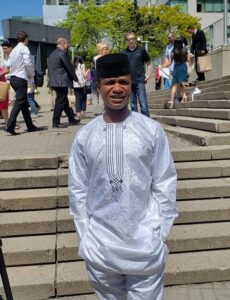
Nigeria’s political landscape has been significantly shaped by a series of military coups, which have played a pivotal role in the country’s governance since gaining independence from Britain in 1960.
These coups were primarily driven by dissatisfaction with civilian rule, allegations of corruption, economic mismanagement, and ethnic tensions.
Here is a detailed history of military interventions in Nigeria’s governance.
1966: The First Coup
Nigeria experienced its first coup d’état on January 15, 1966, led by junior officers, including Major Chukwuma Kaduna Nzeogwu.
The coup aimed to eradicate corruption and ethnic rivalry but resulted in the assassination of several political leaders, including the Prime Minister, Sir Abubakar Tafawa Balewa.
Major General Johnson Aguiyi-Ironsi, an Igbo, took over as head of state, which fueled ethnic tensions and led to accusations of Igbo domination.
July 1966: The Counter-Coup
On July 29, 1966, a counter-coup was led by Northern officers, driven by ethnic motivations and dissatisfaction with Ironsi’s handling of the aftermath of the first coup.
This resulted in the death of Ironsi, and Lieutenant Colonel Yakubu Gowon emerged as the head of state. This period marked the beginning of increased military involvement in Nigerian politics.
1975: The Coup Against Gowon
General Yakubu Gowon was overthrown in a bloodless coup on July 29, 1975, while attending an OAU summit in Uganda.
The coup was led by Brigadier Murtala Mohammed, who accused Gowon of failing to transition to civilian rule and economic mismanagement.
Mohammed introduced a comprehensive reform program but was assassinated in an attempted coup in 1976.
1976: The Dimka Coup Attempt
Following the assassination of Murtala Mohammed during the failed coup led by Lt. Col. Buka Suka Dimka on February 13, 1976, General Olusegun Obasanjo, then Chief of Staff, became the head of state.
ALSO READ:
12 Realistic Ways Governments can Prevent Coup D’etat in Africa
Oronsaye Report: What The 12-Year-Old White Paper Contain
Obasanjo continued Mohammed’s plans for a return to civilian rule, which culminated in the handover to a civilian government in 1979.
1983: The Overthrow of Shagari
The civilian administration of President Shehu Shagari was overthrown on December 31, 1983, in a military coup led by Major General Muhammadu Buhari.
The coup was justified by citing economic mismanagement, corruption, and electoral fraud in the 1983 elections.
1985: Babangida’s Coup
On August 27, 1985, General Ibrahim Babangida overthrew Buhari’s regime in a palace coup, citing the need to restore human rights and address economic challenges.
Babangida’s regime was marked by attempts at political reform and economic liberalization but was also criticized for human rights abuses and corruption.
1993: The Annulment of Elections and Abacha’s Coup
Following the annulment of the June 12, 1993, presidential election, widely believed to have been won by MKO Abiola, Nigeria experienced political turmoil.
This led to the resignation of the interim national government and the seizure of power by General Sani Abacha on November 17, 1993.
Abacha’s rule was marked by repression, human rights abuses, and corruption until his death in 1998.
1998: Transition to Civilian Rule
Following Abacha’s death, General Abdulsalami Abubakar became head of state and initiated a transition program that culminated in the handover to a civilian government led by Olusegun Obasanjo on May 29, 1999.
Follow Egalitarian Voice on WhatsApp Channel for Latest News https://whatsapp.com/channel/0029Va9qtzXHwXbIyBGtjk2o
This marked the end of military rule in Nigeria.
ALSO READ:
Fact-Check: Is Lagos Truly No Man’s Land? Read the history
SPECIAL REPORT: 2023 Is World’s Hottest Year, but 2024 May Be Hotter
Fact-Check: Is Nigeria Among Top 30 Best African Countries with Good Roads








